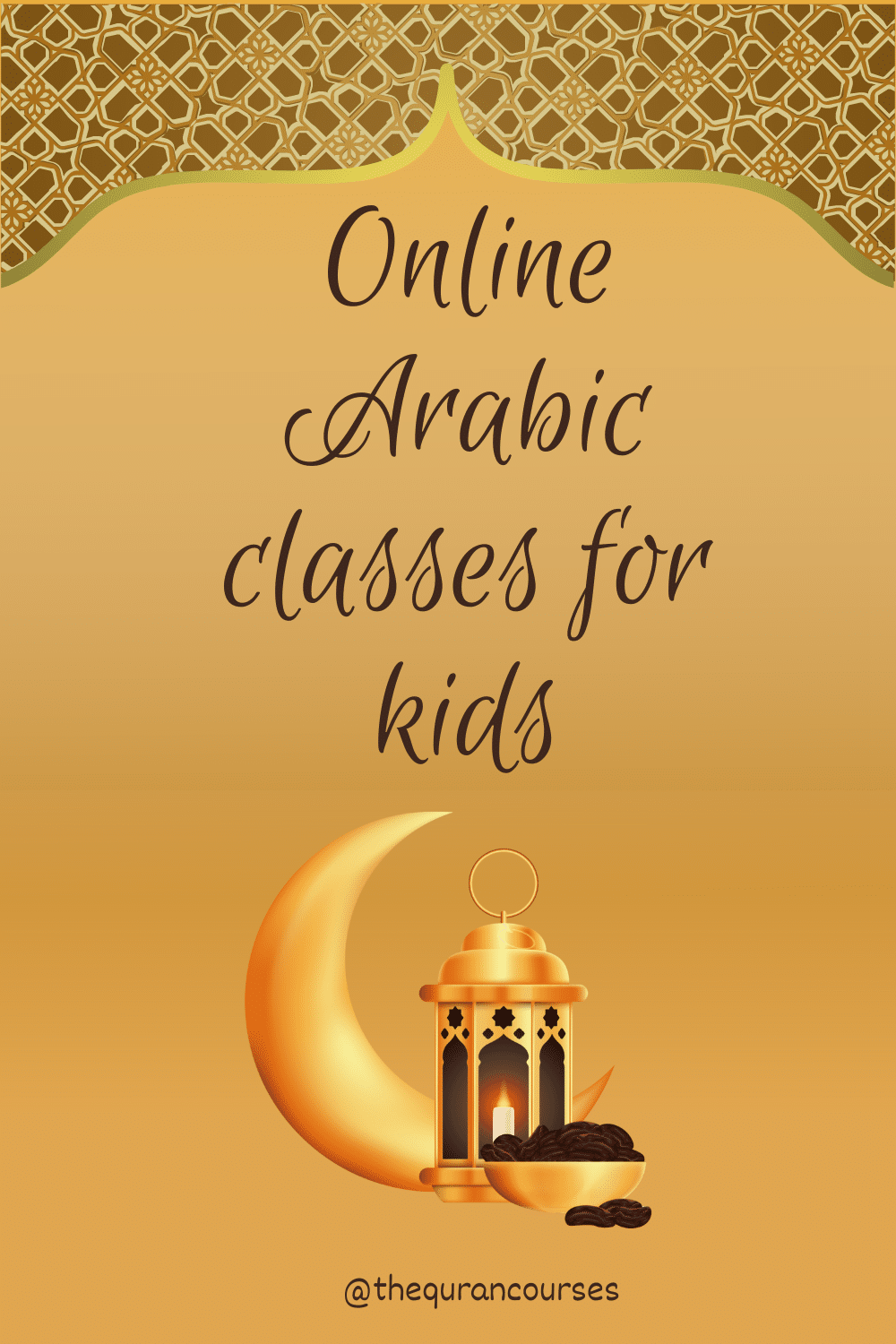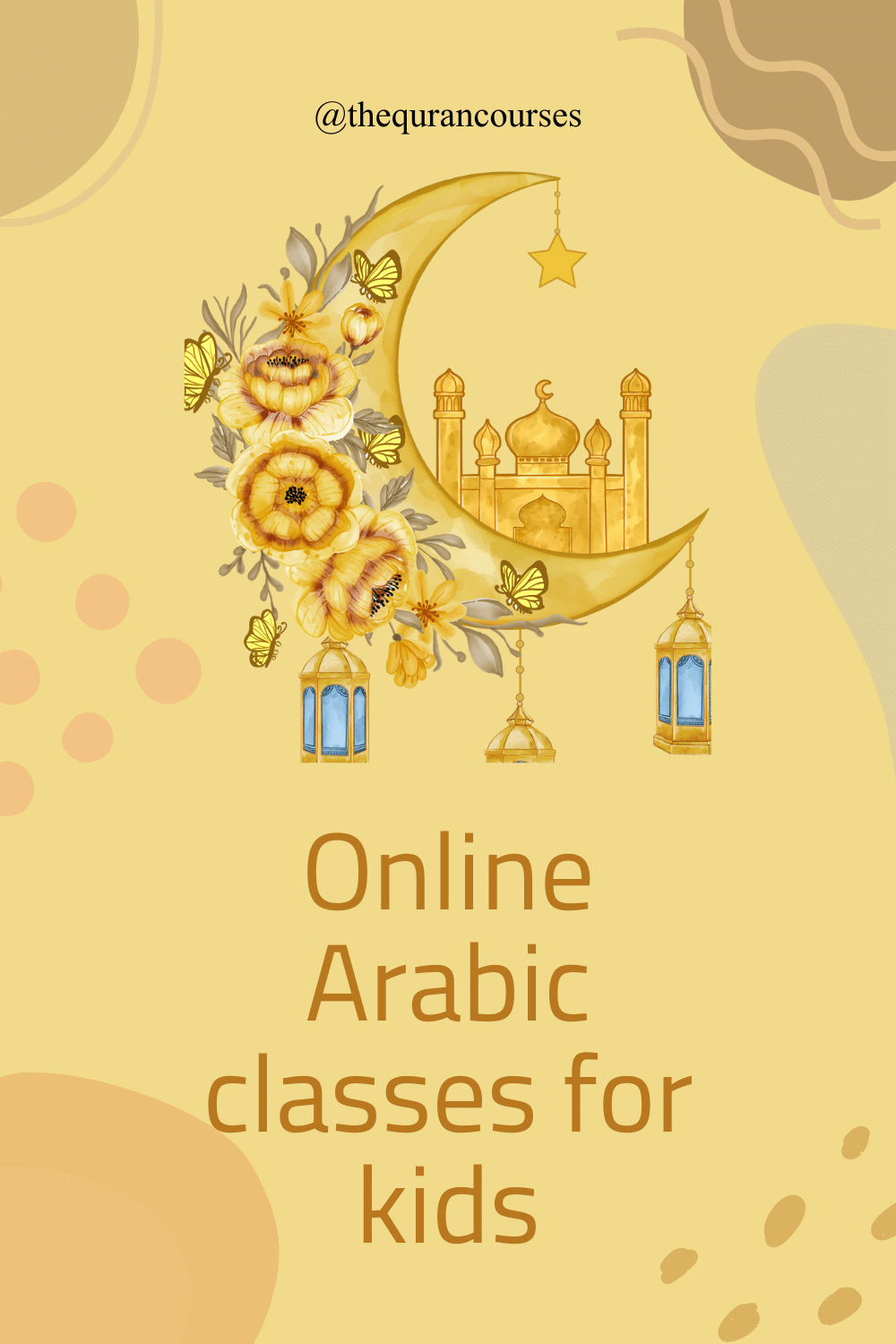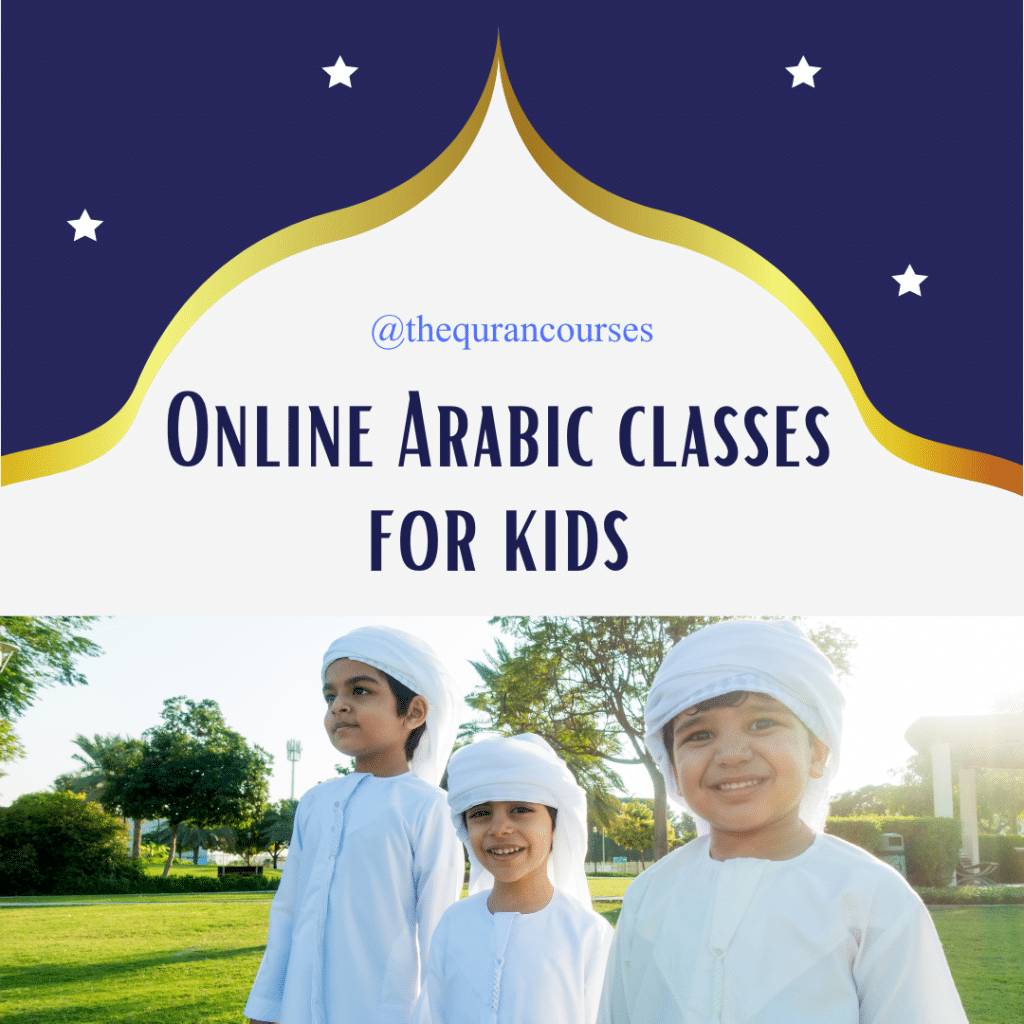Online Arabic classes for kids have become a popular and convenient way for children to learn the Arabic language and culture. These classes offer a range of benefits, including the ability to learn at one’s own pace, the convenience of studying from home, and access to a wide range of resources and materials. In this essay, we will discuss the benefits of online Arabic classes for kids, the different types of classes available, and some tips for parents considering enrolling their children in such classes.
I. Benefits of online Arabic classes for kids
There are several benefits to enrolling children in online Arabic classes. First and foremost, these classes offer the convenience of studying from home. Children can participate in the classes at a time that is convenient for them and their families, without the need to travel to a physical location. This can be particularly useful for families with busy schedules or those who live in areas where in-person Arabic classes are not available.
Another benefit of online Arabic classes is the ability to learn at one’s own pace. In a traditional classroom setting, the pace of instruction is often dictated by the teacher and the needs of the group. This can be challenging for children who are struggling to keep up, as well as for those who are more advanced and need more of a challenge. With online Arabic classes, children can move at their own pace and repeat lessons as needed, ensuring that they are able to fully understand and retain the material.
Online Arabic classes also offer access to a wide range of resources and materials. Many of these classes use interactive tools and resources, such as games and quizzes, to engage children and help them learn in a fun and engaging way. In addition, children often have access to video lessons, podcasts, and other materials that can supplement their learning and provide additional resources for practice and review.
II. Types of online Arabic classes for kids
There are several different types of online Arabic classes available for kids. Some classes are conducted live, with a teacher leading the lesson in real time. These classes often allow for interaction between the teacher and the students, allowing children to ask questions and participate in discussions. Other classes are pre-recorded and can be accessed at any time, allowing children to study at their own pace.
Some online Arabic classes focus on teaching the language itself, while others focus on introducing children to Arabic culture and customs. Some classes may also focus on preparing children for exams or certifications in Arabic. It is important for parents to consider their child’s goals and interests when selecting an online Arabic class, as well as the level of commitment and structure that is best suited for their child.
III. Tips for parents considering online Arabic classes for kids
For parents considering enrolling their children in online Arabic classes, there are a few things to keep in mind. First, it is important to find a reputable and qualified instructor or program. Look for classes that are taught by native speakers or certified language instructors, and be sure to read reviews and ask for recommendations from other parents.
It is also important to set clear goals and expectations for your child’s learning. Determine the amount of time and effort your child is willing and able to commit to the class, and communicate this with the instructor. This will help ensure that the class is a good fit for your child and that they are able to make the most of their learning experience.
In addition, it is important to provide a supportive learning environment for your child. Set aside a dedicated space for them to study and practice, and provide them with the resources and materials they need to succeed. Encourage your child to participate in class and practice regularly, and be sure to praise and reward their efforts.
Online Arabic classes for kids, You will not finish reading this article unless you know everything related to or related to the Arabic language.
Your child can gain enormous information from it and learn the Arabic language through it smoothly.
In summary, online Arabic classes for kids offer a range of benefits, including the convenience of studying from home, the ability to learn at one’s own pace, and access to a wide range of resources and materials. These classes come in a variety of formats, including live and pre-recorded classes, and can focus on language learning or cultural education. For parents considering enrolling their children in online Arabic classes, it is important to find a reputable and qualified instructor or program, set clear goals and expectations for your child’s learning, and provide a supportive environment for their studies. Overall, online Arabic classes can be a convenient and effective way for children to learn the Arabic language and culture.
Online Arabic classes for kids
Teaching your child the Arabic language through online Arabic classes will be the best decision you can make in a child’s life.
We will talk about all the reasons and details from A to Z. The best platform that will give your child the opportunity to learn Arabic with ease and at the hands of the best teachers is the Quran courses, as it will help your child to The rapid development of language, which will lead to his mental and scientific development. Your child will be taught sound foundations and rules with the latest possible educational methods.
Arabic language for your kid:

The Arabic language is incredibly beneficial in increasing the child’s ability to control not only the environment in which he lives but also his motives, tendencies, and needs.
The child expresses his motives, tendencies, desires, and needs if he is the language owner and in control of its basics; there is a connected circle between language and thinking.
The child’s expression at this stage, the child’s hearing of the words of others motivates him to think, and thinking is an expression, and the face is usually in language.
The child’s communication with others helps him shift from the subjective language to the social language, which depends on the child’s experiences and the opportunity to learn the language.
Online Arabic classes for kids can give this opportunity for your kids.
Check out more of our courses: Online Quran classes for ladies
Why do we teach our children the Arabic language?

The Arabic language is one of the primary subjects the student receives during the various educational stages. Still, unfortunately, in recent times, interest in it has declined. Some have begun to view it as a supplementary or secondary study subject. Some educational institutions have taken it to the second place and made the English language or French the first language of education.
This is a fatal mistake and can be described as devastating. The Arabic language must be restored to its position as an official language of instruction in Arab countries due to its religious importance first, then its scientific and national importance.
The importance of learning Arabic:
Many factors emphasize the importance of teaching Arabic to children, which we will talk about in detail:
The Arabic language and the Islamic faith:
The relationship between the Arabic language and Islamic law is solid and eternal.
If that were the only reason for teaching our children the rules of their mother tongue since childhood, it would be a sufficient reason. Or not understanding the correct meanings of the noble verses is often due to the reader’s lack of linguistic sciences and inability to use its tools or comprehend its rules and provisions. The Arabic language is the language of the Qur’an, and the jurists unanimously agreed that it is not permissible to recite it except in Arabic.
They permitted only the possibility of explaining its rulings and verses and clarifying them through other languages.
That your child learn the language on which his faith is based, and online Arabic classes for kids will help him to do that.
Able to communicate:
Languages, in general, are the only a tool that helps people communicate with each other, as it is the only means that enable us to understand others and make them know what is going on in our minds and the different languages. Formal correspondence, and for this, we must urge our children to learn the Arabic language as it is the national language of their countries, and the only way to link them with their Arab Muslim brothers, and what is meant here by learning is not for the child to be fluent in speaking in the Arabic language, as this is a skill acquired by upbringing and society. Still, the point is to master the rules of the Arabic language properly. Also, if you are not an Arab and want to teach your child the Arabic language, it will be one of your best choices because the Arabic language will benefit him a lot in his life; you can book online Arabic classes for kids easily.
And because it is easy to learn the language at a young age, this will help him when he is an adult and enable him to find the best job opportunities to acquire more than one language.
The Arabic language is closely related to the labor market.
Arab nationalism:
The Arabic language is also one of the foundations on which the desired Arab nationalism is built. It is one of the common factors that unite the sons of the Arab nation and one of the manifestations of their unity and shared interests and goals. This language is one of the factors that link more than 400 million Arab citizens and the preservation of the Arabic language. And the upbringing of your child to learn it is not one of the primary factors, and it will be one of the reasons that lead to the realization of Arab unity.
Ease of learning other languages:
A comparative study was recently conducted at a British university to determine the factors that help children learn and develop a foreign language. The results indicated that children who mastered their mother tongue in all its foundations and rules were more likely to learn and master foreign languages, both spoken and written, which means that Learning the Arabic language – as the mother tongue – is one that expands the child’s perceptions, and contributes to the development of his language skills, which paves the way for him to learn more languages, and also because the Arabic language is close to many languages.
Its similarity with them in the lexicon will be easy for your child to learn another language.
Online Arabic classes for kids will give your child all the advantages of the Arabic language that will positively affect his life.
Check out more of our courses: Online Quran classes for ladies



